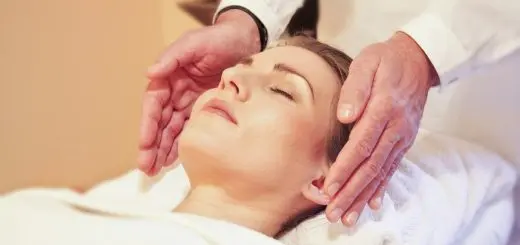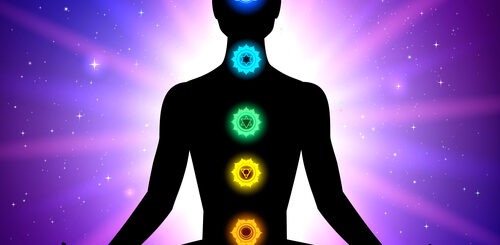The Science of Reiki: Exploring Evidence-Based Benefits

Looking for more amazing products? Check out our online store and explore our collection here! Happy shopping!
Before diving in, please note: This post is for informational purposes only. If you’d like to know more about how we approach topics, feel free to check out our friendly Disclaimer Page.
Hey there, amazing readers! 
We’re committed to delivering quality posts, and your support (even just sticking around despite the ads) means everything to us. So, bear with us, and thanks for helping us keep the good vibes rolling. Now, on to the fun stuff!
TRANSLATE BUTTON AT THE END OF THE ARTICLE
The Science of Reiki: Exploring Evidence-Based Benefits
Overview
Reiki is a form of energy healing that has gained popularity in recent years.
While some skeptics dismiss it as pseudoscience, there is a growing body of evidence supporting its benefits.
This article will delve into the science behind Reiki, exploring its historical origins, debunking misconceptions, and examining its mechanisms of healing.
It will also discuss the evidence-based benefits of Reiki therapy, including its role in pain management, stress reduction, sleep improvement, and overall well-being.
Additionally, we will explore the integration of Reiki into conventional medicine and address criticisms and limitations of Reiki research.
Understanding the Basics of Reiki Energy Healing
Reiki is a non-invasive healing technique that aims to balance and harmonize the body’s energy.
It is based on the belief that life force energy flows through every living being, and when this energy is disrupted or blocked, it can lead to physical, emotional, or spiritual imbalances.
Reiki practitioners use their hands to channel this universal energy to the recipient, promoting relaxation, stress reduction, and overall healing.
The energy is said to flow through the practitioner’s hands and into the recipient’s body, helping to clear blockages and restore balance.
Historical Origins and Cultural Context of Reiki
Reiki originated in Japan in the early 20th century, with its founding attributed to Mikao Usui.
Usui developed the practice after a period of fasting and meditation on Mount Kurama.
His teachings were passed down to a lineage of Reiki masters, and the practice eventually spread to the Western world.
In Japan, Reiki is deeply rooted in the cultural and spiritual traditions of the country.
It is seen as a holistic approach to healing that encompasses physical, mental, emotional, and spiritual aspects of well-being.
In the West, Reiki is often approached from a more secular perspective, focusing primarily on its healing benefits.
Debunking Misconceptions Surrounding Reiki
Reiki has faced its fair share of skepticism and criticism, with some dismissing it as pseudoscience or placebo.
However, there are several studies that suggest otherwise.
While the exact mechanisms of Reiki are not yet fully understood, research has shown its positive effects on various health outcomes.
It is important to approach Reiki with an open mind and consider the evidence before forming conclusions.
Exploring the Mechanisms of Reiki Healing
The mechanisms of Reiki healing are still being explored.
Some theories suggest that the energy transferred during a Reiki session may stimulate the body’s natural healing mechanisms, promote relaxation, and reduce stress.
It is also possible that Reiki may have an effect on the bioenergetic field surrounding the body, influencing the flow of energy and restoring balance.
However, more research is needed to fully understand the mechanisms of Reiki healing.
Reiki and the Mind-Body Connection
Reiki is often used as a complementary therapy to promote mind-body connection and overall well-being.
It can help individuals become more aware of their bodies, emotions, and thoughts.
By promoting relaxation and reducing stress, Reiki can enhance mindfulness and improve overall mental health.
This mind-body connection is an essential aspect of Reiki healing.
Evidence-Based Benefits of Reiki Therapy
Numerous studies have explored the benefits of Reiki therapy, providing evidence for its effectiveness in various health conditions.
While more research is needed to establish the full extent of its benefits, some of the most notable findings include:
Pain Management: Several studies have shown that Reiki therapy can reduce pain intensity and improve pain tolerance in individuals with chronic pain conditions such as fibromyalgia and cancer.
Stress Reduction: Reiki has been found to significantly reduce stress and anxiety levels, promoting a sense of calm and relaxation.
Sleep Improvement: Research suggests that Reiki can improve sleep quality and reduce insomnia symptoms, helping individuals achieve better restorative sleep.
Well-being Enhancement: Reiki therapy has been associated with improved emotional well-being, increased resilience, and a greater sense of overall well-being.
Immune System Boost: Some studies have indicated that Reiki may have positive effects on the immune system, potentially enhancing immune function and promoting better health outcomes.
Reiki and Pain Management: What Science Says
Several studies have explored the effects of Reiki therapy on pain management.
One study published in the Journal of Pain and Symptom Management found that Reiki significantly reduced pain intensity and improved pain tolerance in individuals with fibromyalgia.
Another study published in Cancer Nursing showed that Reiki therapy reduced pain and anxiety levels in cancer patients undergoing radiation treatment.
These findings suggest that Reiki may play a valuable role in pain management, providing a non-invasive and complementary approach to conventional treatments.
The Role of Reiki in Reducing Stress and Anxiety
Stress and anxiety are prevalent in today’s fast-paced society, and Reiki offers a potential solution for managing these conditions.
A study published in the Journal of Alternative and Complementary Medicine found that Reiki therapy significantly reduced anxiety levels in individuals undergoing cardiac surgery.
Another study published in the Journal of Evidence-Based Complementary & Alternative Medicine showed that Reiki decreased stress and anxiety in undergraduate nursing students.
These findings suggest that Reiki can be an effective tool for stress reduction and promoting emotional well-being.
Reiki’s Impact on Sleep Quality and Insomnia
Sleep problems, such as insomnia, can have a profound impact on overall health and well-being.
Research has shown that Reiki therapy may help improve sleep quality and reduce insomnia symptoms.
A study published in the Journal of Holistic Nursing found that Reiki significantly improved sleep quality in elderly individuals.
Another study published in the Journal of Alternative and Complementary Medicine showed that Reiki reduced insomnia symptoms and improved sleep duration in postpartum women.
These findings suggest that Reiki may offer a non-pharmacological approach to sleep improvement.
Enhancing Well-Being with Reiki: Physical and Mental Health
In addition to its specific benefits in pain management, stress reduction, and sleep improvement, Reiki therapy has been associated with overall enhancements in physical and mental health.
Research has shown that Reiki can enhance emotional well-being, increase resilience, and improve self-reported health outcomes.
A study published in the International Journal of Behavioral Medicine found that Reiki therapy improved emotional well-being and quality of life in breast cancer survivors.
Another study published in the Journal of Alternative and Complementary Medicine showed that Reiki decreased symptoms of depression and anxiety in individuals receiving HIV care.
These findings highlight the potential of Reiki to positively impact overall well-being.
Integrating Reiki into Conventional Medicine: A Growing Trend
As the evidence supporting the benefits of Reiki continues to accumulate, there is a growing trend towards integrating Reiki into conventional medical settings.
Many hospitals and healthcare centers now offer Reiki as a complementary therapy alongside conventional treatments.
This integration recognizes the potential of Reiki to support and enhance the healing process.
However, it is important to note that Reiki should not replace conventional medical care, but rather complement it.
Criticisms and Limitations of Reiki Research
While research on Reiki is growing, it still faces criticisms and limitations.
Some critics argue that the effects observed in Reiki studies may be attributed to placebo or non-specific effects.
Others question the lack of standardized protocols and variability in the training and experience of Reiki practitioners.
Additionally, there is a need for more rigorous and well-controlled studies to further establish the efficacy and mechanisms of Reiki healing.
Despite these limitations, the accumulating body of evidence suggests that Reiki may have tangible and significant benefits for individuals seeking holistic healing and well-being.
Conclusion
Reiki, a form of energy healing, has gained recognition for its potential benefits in pain management, stress reduction, sleep improvement, and overall well-being.
While the mechanisms of Reiki healing are still being explored, scientific studies provide evidence for its efficacy in various health conditions.
Reiki therapy has been shown to reduce pain intensity, alleviate stress and anxiety, improve sleep quality, and enhance emotional well-being.
As the evidence continues to accumulate, Reiki is being integrated into conventional medical settings as a complementary therapy.
Despite criticisms and limitations, Reiki offers a holistic approach to healing that can support and enhance overall physical and mental health.

The Enlightenment Journey is a remarkable collection of writings authored by a distinguished group of experts in the fields of spirituality, new age, and esoteric knowledge.
This anthology features a diverse assembly of well-experienced authors who bring their profound insights and credible perspectives to the forefront.
Each contributor possesses a wealth of knowledge and wisdom, making them authorities in their respective domains.
Together, they offer readers a transformative journey into the realms of spiritual growth, self-discovery, and esoteric enlightenment.
The Enlightenment Journey is a testament to the collective expertise of these luminaries, providing readers with a rich tapestry of ideas and information to illuminate their spiritual path.
Our Diverse Expertise
While our primary focus is on spirituality and esotericism, we are equally passionate about exploring a wide range of other topics and niches 

To ensure we provide the most accurate and valuable insights, we collaborate with trusted experts in their respective domains 
Our blog originally focused on spirituality and metaphysics, but we’ve since expanded to cover a wide range of niches. Don’t worry—we continue to publish a lot of articles on spirituality! Frequently visit our blog to explore our diverse content and stay tuned for more insightful reads.
Hey there, amazing reader! 
Check out our store here and take a peek at some of our featured products below! Thanks for being awesome!











